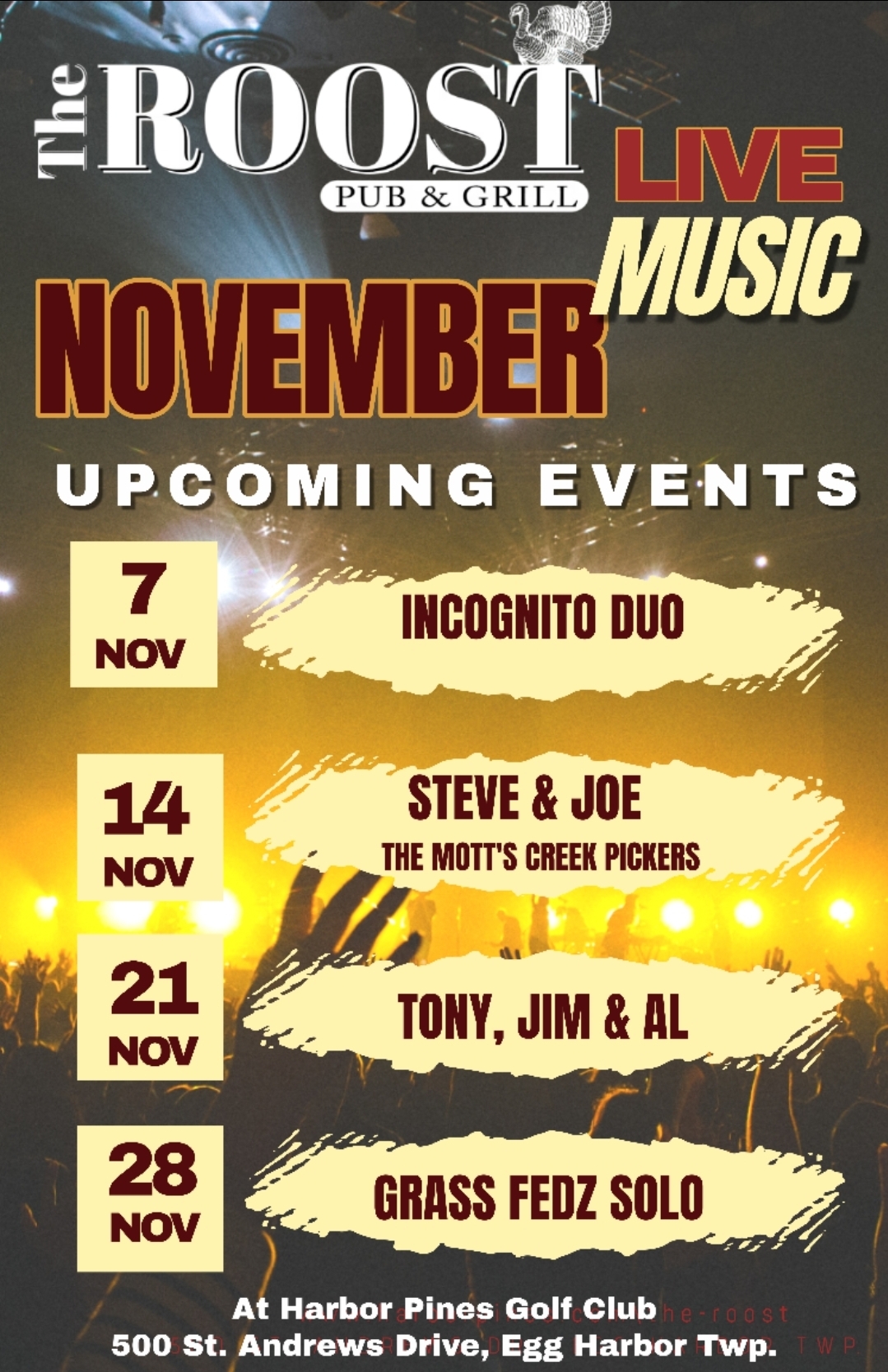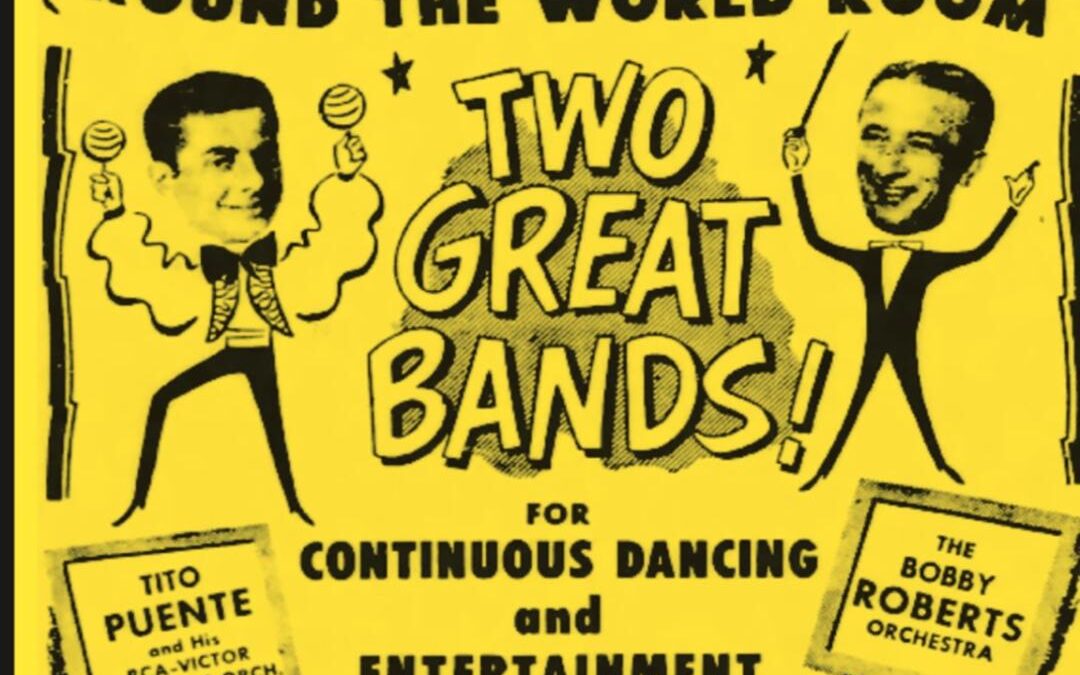When it comes to all things Atlantic City, Vicki Gold Levi is a force of nature as a historian, curator, cheerleader, author and writer about everything that has to do with the rich history of the “Queen of Resorts.”
Levi, as it turns out, is also a major fan of Latin American music, particularly the many legendary Latin American orchestras that appeared in Atlantic City from the 1940s through the 1960s.
As a result of her enthusiasm, research and incredible collection of memorabilia, the Foundation of the Atlantic City Free Public Library will debut “Latin Rhythms by the Sea” at Jim Whelan Boardwalk Hall on Wednesday, Nov. 19, as part of its “The Atlantic City Experience” exhibit. The event will include a free Latin pipe organ concert at noon, played on Boardwalk Hall’s famed Midmer-Losh organ – the largest such organ in the world – by award-winning organist Luke Staisiunas.
Levi is much more than a fan with a good collection; she has been involved in every facet of this program. After presenting several Latin music-focused programs at Florida International University’s Wolfsonian Museum in Miami Beach, she was inspired to do something similar in Atlantic City.
As project director of “The Atlantic City Experience” (the library’s history exhibit at Boardwalk Hall) and chairwoman of the Foundation of the Atlantic City Free Public Library, she curated “Latin Rhythms by the Sea” with the New York City-based design firm, Pure and Applied. This is a woman who does things right.
“Latin Rhythms by the Sea” is an exhibition of singular and ultra-rare memorabilia related to the years when Latin American band-leading giants like Tito Puente, Noro Morales, Xavier Cugat and Pedro Albani performed at the leading hotels on the Boardwalk.
The influence of Latin American music and rhythms on American jazz is extensive. In the 1940s, bandleaders like Dizzy Gillespie and Stan Kenton adapted the rich Latin harmonies and rhythms to their music. When combined with jazz improvisation, the end result was an electrifying hybrid which is still played today.
Levi’s research spotlights the many Latin music pioneers and bandleaders who were regular and popular performers in Atlantic City through the years. During the 1950s, for example, Joe Loco’s band played at Mack’s Musical Tavern at 123 N. New York Ave., Tito Puente performed at the President Hotel and Noro Morales led his band at the Traymore Hotel. One of the biggest stars of Latin music, and one of the earliest to appear in Atlantic City was Xavier Cugat, who in 1946 became one of the first shareholders in the Atlantic City Race Course.
As a personal aside, on the bill at the President with Tito Puente was the Philadelphia-based society orchestra of Bobby Roberts, who for decades was one of the top society bands on the East Coast and beyond. I played drums for Bobby Roberts several times. I wish he would have mentioned Tito Puente.
One part of the exhibit focuses on Atlantic City native, bandleader and multi-instrumentalist Pedro Albani. Now relatively obscure, in his day he was a national name and quite influential in Latin American music.
Albani’s family came to Atlantic City in the late 1920s from New Mexico, where, it is said in a biography written by his family, “he taught himself to play every musical instrument he could get his hands on.”
Albani was 17 years old when he arrived in Atlantic City in 1929, and it didn’t take him long before he became a force on the Latin music scene here in the ’40s and ’50s. His Latin bands played at all the big hotels on the Boardwalk. His various orchestras – among them Pedro Albani’s Rio Rumba Band and The Islanders – performed at the Treasure Island Room of the Brigantine Hotel, the Calypso Carousel Room at the Ritz-Carlton and the Carousel Room at the Mayflower, as well as many others.
Albani was also active as a composer. A look at his discography shows that he wrote songs for Cugat, Enric Madriguera, Miguelito Valdés, Alfredo Méndez and Joe Loco for record labels like RCA and Vogue. Some of his more famous songs were “Dance Mad,” “El Diablo” and “Atlantic City Rumba,” written in 1949 and recorded by numerous artists.
In his later years, Albani had a radio program on WMID that featured Latin American music. According to a 2011 story in Atlantic City Weekly, he also taught accordion.
The public can learn more about this underappreciated period in our local musical history on Nov. 19.
Admission is free to this very special event. Doors open at 11:45 a.m. for the organ concert, which begins at noon, followed by the exhibition opening reception and light refreshments at 1 p.m. Both events are free and open to the public. Free parking is available under Boardwalk Hall.
Bruce Klauber is the author of four books, an award-winning music journalist, concert and record producer and publicist, producer of the Warner Brothers and Hudson Music “Jazz Legends” film series, and performs both as a drummer and vocalist.















